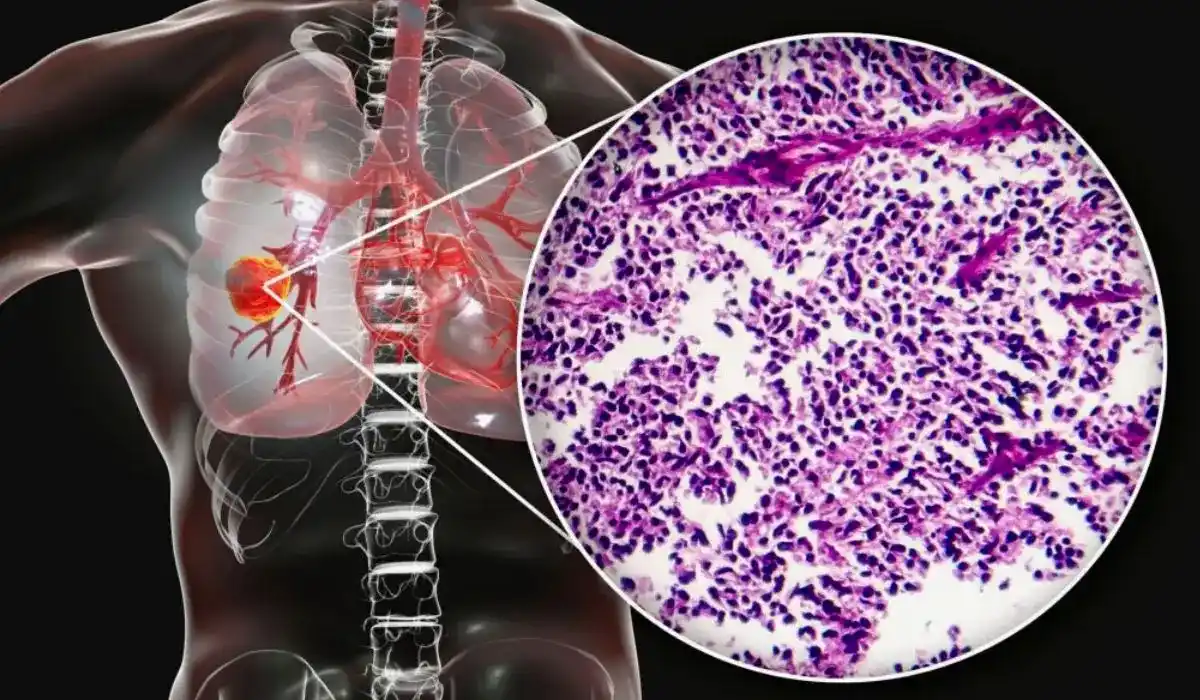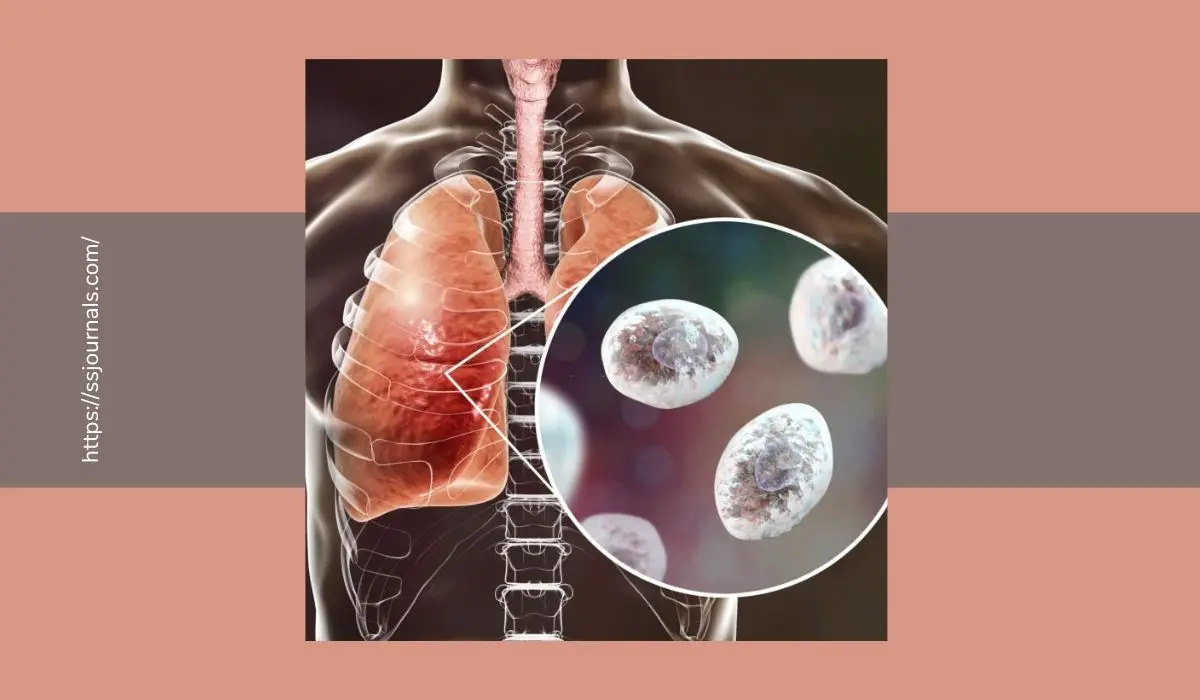Lung tumors and nodules can have a huge impact on your respiratory organs.
These abnormal growths can cause many issues, making it hard to breathe and affecting lung function. It’s important to know the effects and take action to manage them.
They can obstruct air passages, leading to issues like wheezing, coughing, and shortness of breath. Plus, they harm healthy lung tissue, reducing its ability to expand and contract.
Tumors can spread to other parts of the body, putting strain on your respiratory system and other organs. It’s essential to seek medical help if you have persistent respiratory symptoms.
Early detection allows for more effective treatment and better outcomes. Tests such as X-rays, CT scans, and biopsies can evaluate the growth.
Besides medical treatment, there are lifestyle changes to help reduce the impact. Quitting smoking is key as it reduces the risk of new tumors and improves lung function.
Exercise and a healthy diet can also strengthen your lungs and help them cope with existing growths.
Each person’s situation is different, depending on factors such as tumor size, location, and overall health.
It’s important to get personalized medical advice to create the best treatment plan.
Understanding Lung Tumors And Nodules
Lung tumors and nodules can cause a shake-up in your respiratory organs. From benign to malignant, it’s important to understand their implications.
Early detection and diagnosis are key. Symptoms may include coughing, breathing trouble, chest pain, and even coughing up blood.
Depending on size and location, they may also block airflow, affecting your respiratory system.

Not all tumors and nodules are cancerous – some may be benign and harmless. However, medical advice is always a good idea.
Diagnostic tests, such as CT scans, may be recommended to find out about the growth.
Risk factors are linked to lung tumors and nodules. Smoking, exposure to chemicals, radiation therapy, and a family history of cancer can increase the chance of developing them.
Knowing about risk factors can help people make choices to reduce this likelihood.
Signs And Symptoms Of Lung Tumors And Nodules
Lung tumors and nodules can cause a range of signs and symptoms. Coughing, wheezing, shortness of breath, chest pain, and weight loss are all possible outcomes.
Some sufferers may also experience fatigue, recurrent respiratory infections, hoarseness, or difficulty swallowing.
These growths can obstruct airflow and make coughing or existing coughs worse. Wheezing may also occur.
Shortness of breath can result from the limited space available as the growths expand within the lungs.
Chest pain can be caused by these tumors or nodules pressing against structures in the chest cavity. This pain can range from mild to severe.
Unexplained weight loss is common in the advanced stages of lung cancer. Cancer cells can consume energy reserves intended for healthy bodily functions.
Hoarseness or difficulty swallowing may occur if nerves responsible for vocal cord or esophagus control are compressed.
It’s important to note that these signs and symptoms can indicate other respiratory conditions. Medical professionals are needed to provide accurate diagnoses and treatments.
Treatment Options
Immunotherapy is an alternate treatment to trigger the body’s immune system to battle cancer cells.
Factors such as the kind and stage of the lung tumor or nodule, and the patient’s overall health, will determine the chosen therapy.
A study in the Journal of Thoracic Oncology claims that surgery is the go-to treatment for early-stage lung cancer.
The potential consequences on your breathing organs may leave you astounded – not in a pleasant way.
Potential Impact on Respiratory Organs
Lung tumors and nodules can have a huge effect on your respiratory organs. Such as:
🔶 Trouble Breathing: Tumors or nodules blocking the airways make it tough to breathe.
🔶 Decreased Lung Function: Tumors affecting the lungs’ ability to expand and contract can lead to lessened lung function and issues with oxygen exchange.
🔶 Coughing And Wheezing: Tumors causing inflammation and irritation of the air passages can bring about coughing and wheezing.
🔶 Risk Of Pneumonia: Tumors or nodules creating an environment suitable for infection make pneumonia more likely.
🔶 Pain And Discomfort: Big tumors pressing against cells may cause chest pain and misery.
It is absolutely essential to keep in mind that early detection and speedy treatment are vital to lessen the effects on respiratory organs.
People at higher risk for developing lung tumors or nodules should go for regular check-ups and screenings.
To cut down the effects on respiratory organs, a few steps can be taken:
🔶 Stop Smoking: Giving up smoking is essential for protecting your lungs from further harm. Smoking cessation programs can help.
🔶 Live Healthily: Exercise often, eat plenty of fruits and vegetables, and stay away from toxins to safeguard your lung health.
🔶 Regular Medical Visits: Seeing your healthcare provider regularly helps to identify any abnormalities in your respiratory system and get swift medical help if required.
By implementing these measures, you can improve your lung health and reduce the potential impact of lung tumors or nodules on your respiratory organs.
Remember that prevention and proactive approaches are the keys to keeping your respiratory well-being.
Support in dealing with lung tumors is like getting a breath of fresh air, just make sure it’s not smoke-filled!
Read More:- Is Botox Treatment Good For Hair? Is It Expensive?
Conclusion
Cancerous lung tumors and nodules can have a big impact on your respiratory organs. These growths can mess with the normal functioning of your lungs, making it hard to breathe.
Plus, they can block airways, causing coughing, wheezing, and shortness of breath.
They can also affect the oxygen and carbon dioxide exchange in your lungs.
This can lead to decreased lung capacity and other symptoms like fatigue, chest pain, and infections.
If you have any persistent respiratory symptoms or risk factors for lung cancer, like smoking or exposure to toxins, don’t wait to get medical help.
Taking prompt action can give you better chances of effective treatment and preserving the health of your respiratory system.
Your lungs deserve every chance for survival and well-being – so don’t miss out on timely intervention.

